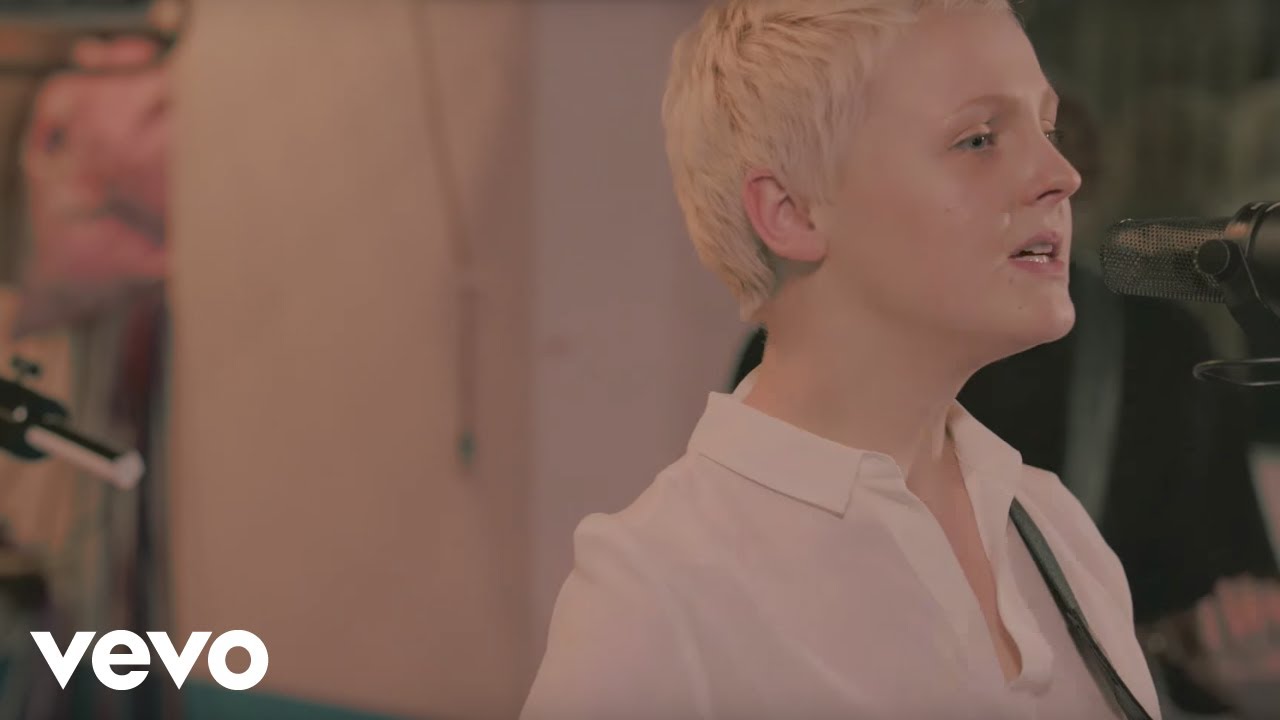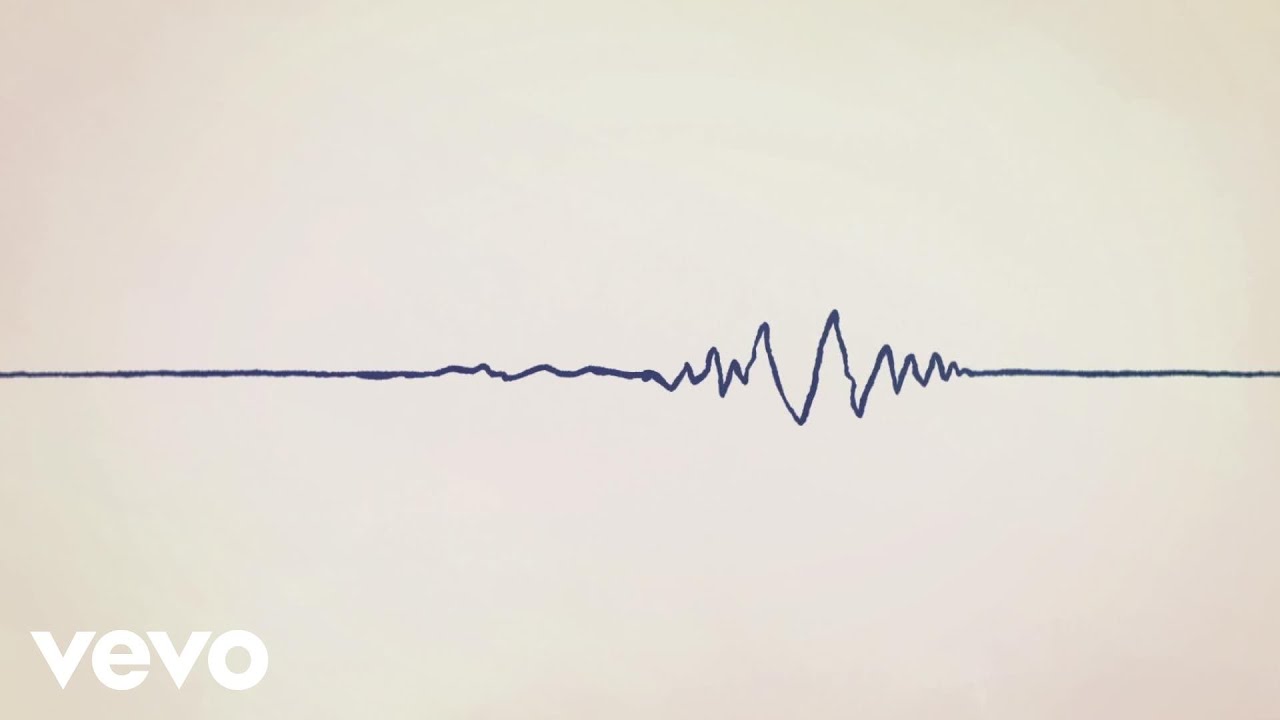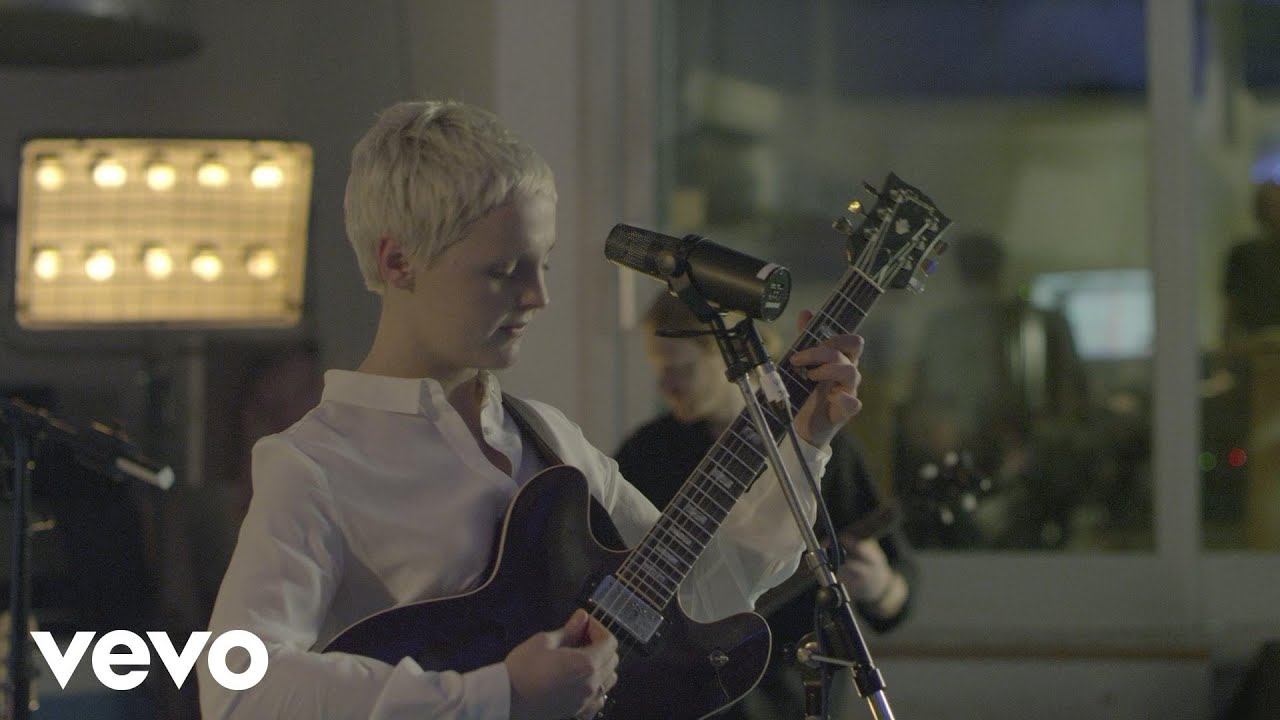Convention decrees that a midlife crisis hits us somewhere around the 39 to 43-years mark. Routine symptoms include deep questioning as to the nature and purpose of our lives, what the future might hold and whether we’re really happy with our family/friends/job/face. We might attempt to settle a bad case of the existential heebie-jeebies by effecting a radical image change, having an affair or going feral in Thailand, but what most of us don’t do is wring a meaningful and engaging artistic expression out of the experience – before we’ve turned 25. Laura Marling, who reached her quarter-century just a few days before I met her, has done exactly that.
With four albums and a Brit award (for Best British Female, in 2011) already to her name, the singer-songwriter has lived a life accelerated by the apparent ease of its progress, from growing up in Hampshire as the daughter of a baronet and music studio owner (her father) and music teacher (mother), to falling in with a London scene that included Noah & The Whale and Mumford & Sons, recording her first album (the Mercury Prize-nominated Alas, I Cannot Swim) aged just 17, and being lauded by the likes of Neil Young and Graham Nash.
It’s now far too late in the game to describe her as precocious, but it’s hard not to be impressed by Marling’s accomplishments. Now, Short Movie completes a full recording hand of cleverly structured but unfussy, modernist songs that draw on the Laurel Canyon acoustic folk scene of the late 60s and early 70s. It features her sweetly resonant voice and trademark immaculate phrasing (Joni Mitchell is the obvious reference here) and the peculiar, alluringly airy coolness that has often had her described as reserved by those who expect all singer-songwriters (but especially women) to slop out their guts for public inspection. Short Movie is also a departure, in that it features electric guitar on several tracks – employing gnarly dynamics and a muscular urgency in much the same way as PJ Harvey’s Stories From The City, Stories From The Sea – and it casts some songs into uncharacteristically deep, reverb-drenched space. It also documents a period of huge personal upheaval, involving much serious soul-mining.
Marling left England for the US in the summer of 2012, at the end of the tour supporting her album Once I Was An Eagle. That tour left her and her band totally exhausted and in need of a long recuperative break, but after just three weeks of downtime, Marling felt restless and bored, so embarked on a solo US tour. Sans bandmates, sans road manager and with just two guitars and her laptop, she drove off alone, playing small, independent venues, often in off-piste locations and generally having a Great American Adventure. Along the way, she met and fell in love with a Canadian and moved with him to LA. They split up soon after, but Marling stayed on, moving around different neighbourhoods and even shacking up in Joshua Tree for a while.
In the two and a half years she was away, she did nothing music-related for six months, enjoying her new freedom and the thrilling possibilities of reinvention afforded by moving somewhere where nobody knows you. But she was also pitched into a disorienting fog of identity loss and challenges to her values and life purpose, including serious doubts about whether she even wanted to be a musician any more. All of this found its way – directly and indirectly – into Short Movie. On a brutally cold winter morning two months after her return to London, I visited Marling at home in a brick cottage in a quiet, East End terrace row. Over countless black coffee refills, she unravels her tale.
Just how different was your LA experience from your established London life?
Laura Marling: It was one big adventure; I was living pretty much off instinct and intuition for the whole time I was there. I took six months completely away from music – I wasn’t touring, I wasn’t writing, I wasn’t doing anything. I was trying to do other things just to see what would happen if I opened up that space. I’m not much of a party person, but in LA I had to go to parties because it was the only way I got to meet people. And there, the inevitable question is, "What do you do?" I’d either say I was kind of between things at the moment, or, "I’m a musician", in which case people would go [soft, pitying voice], "Good for you." At that time, my friends were mostly amazing artists and musicians working in cafes and earning very little money and I hadn’t really seen people doing that in London – maybe just because of where I grew up and the kind of crowd I grew up with. I hadn’t really seen proper struggling artists. I found that quite unsettling and humbling, but also really inspiring.
It sounds as if you were suddenly struck by how much of an easy passage you’d had so far, with a fairly privileged family background and early association with a successful peer group.
LM: That leads into a kind of middle-class debate, which I think is a total waste of time – and I don’t think that privilege is a dirty word. But it did make me shrink back in on myself in shame and then I began to collapse there, seeing how much disgusting money there is in LA, and how much of this artistic spirit. I was really stuck in between the two and I kind of lost faith in everything, to the point of whether I was even justified to call myself a musician in the UK. I suddenly didn’t feel like anything I’d done was worthwhile. It was like I hadn’t paid my dues, but I hadn’t ever thought that before then.
You doubted your validity as a musician, with four albums to your credit and a fistful of awards?
LM: I have done and still do think a lot about what it means to be a good and useful human being. And for a long time, when I was living in LA I didn’t think being a musician was useful. But that can take you off on a really egotistical path and even if it’s self-flagellation – like [affects whiny voice], "I’m not doing anything worthwhile" – well, so what? Why should you be doing something valuable?
So, in your six months away from music, what were these "other things" that occupied you?
LM: I did a lot of other things, some of which I’ll keep to myself. But I did a lot of travelling on my own and camping and foraging. And I was doing a lot of occult-y things. I was taking the best of California.
It’s said that when we develop the accent of our adopted home, it’s an unconscious attempt to be accepted by the new tribe. But you don’t have even a trace of an American twang.
LM: Thank god. Can you imagine? I think I held on tighter to my own accent when I got there. When I arrived in LA I thought, I can be whoever the fuck I want – nobody knows who I am. And for a long time it was great; I was piecing myself back together. Only now in retrospect, listening back to the record, do I realise I was assuming a character most of the time I was there, because it gave me the excuse to live out my fantasy. I was somewhere where it was legitimate to go and see your tarot reader once a week or go and take mushrooms in the desert. I was living in a complete fantasy. It was fantastically liberating and I met some amazing American people, but I see now that around them I had this persona. I was English and I was holding onto that.
Tell us about the eccentric you met on the road in California, who provided the title for your new record.
LM: He was definitely far-out. I met him in a bar in Mount Shasta, which is right on the border of Oregon, so it’s beautiful, mountainous country. I stopped there on my solo tour because I was a vegan and they had a vegan restaurant. It was a tiny place and there was no one around, so I went into this bar and was talking to the server, who was saying Mount Shasta is always covered by clouds and is rumoured to have a spaceship at the top of it. Quite a lot of hippies moved there in the 60s. This local guy in his late sixties came in and sat next to me and it turned out he was a flute player and a shaman. I ended up telling him that I was thinking quite a lot about not wanting to be a musician forever. After everything, he’d say, "Yeah – it’s a short fucking movie, man." He told me I had to go to the Mount Shasta River and fill up my water bottle, because it was life-giving water directly from the source. I usually never do things like that, but I got up at 5am the next day and followed his scribbled directions. I could hear water, but I couldn’t see it as it was really dark, but as I was walking forward, I fell into the river, because it was only ankle deep. The water was… I can’t describe it. Really, I’ve never tasted anything like it. It’s not like it gave me magical powers or anything, but I’m really glad I did that.
If you weren’t even certain you wanted to be a musician, the prospect of making another record must have been daunting. Did you think, "Fifth album – I’d really rather not"?
LM: I did have that feeling, yes. I actually recorded a whole album that we binned, in October 2013. It was just a really boring album, although we tried to do a few different things on it. We had Jim Keltner, who’s the most incredible drummer and an LA legend, but the songs just didn’t have it. When I was writing it, I thought that maybe I just didn’t remember what it felt like, but then when we took the songs into the studio, there was no magic. It was like every bit of magic in me had gone into the way I was living my life.
Speaking of magic, how did your readings of [Chilean author, filmmaker, comic-book artist and psychomagician] Alejandro Jodorowsky feed into Short Movie? What was it in his work that resonated with you?
LM: There are two aligned reasons why I read a lot of him and a lot of Carl Jung; they both make really interesting points about the individuality of humans, along with their wholeness and their context in the vast universe. What I like about Jodorowsky is that he says yes, ritual is an invention, but it’s a way of investing our life with meaning. That inspired me to make my life a fantasy when I was in America and allowed me to be so much more who I really am, and to be okay with being slightly odd, or whatever. For both him and Jung, the idea is that humanity is deeply hurt and has this inherent pain. It’s not like there’s good and evil, and ‘evil’ people feel pain because they’re being punished. Religion, I feel, is all about the avoidance of punishment and about wanting something to converse with you, to confirm your centrality to the universe. Their ideas make me feel much safer, for whatever reason and when I see a Jodorowsky film, I’m reminded that there are no boundaries. My idea of reality was completely transformed by reading Psychomagic and Dance With Reality.
You mentioned tarot earlier and I know that Jodorowsky has written a book about it as a spiritual guide. Do you read the cards yourself, and do you see a reading as anything other than entertainment?
LM: I was being taught to read when I was in America. I love it; I just find it fascinating. I do it for myself and for others sometimes, but I don’t take it very seriously. Clearly, I don’t believe in magic, but I do love the symbolism of it. Plus, I do like trying to take on information and going through a whole tarot set is a lot of information. You have to learn the order of the cards, their history, the symbolism and their relation to every possible place each of them could have come from. It’s so massively vast. Obviously, the cards have been given meaning – it’s not that the meaning came from somewhere else. It’s just fun, really.
Jodorowsky – whose films, at least, are rather like Technicolor explosions of the id – could hardly be more different from Walt Whitman and Rainer Maria Rilke, whose writings you also drew on for the record. What did you find in them?
LM: I was watching all of Jodorowsky’s movies and reading all his books, I was reading everything on Rilke I could get my hands on and I was reading the current edition of Leaves Of Grass. I wasn’t actually writing any music at the time, because I was so overwhelmed by what I was taking in. The first page of the Whitman book – which took me quite a long time to get through – was a letter that he’d written to a critic. Someone had written a really favourable review, but Whitman felt he’d got it wrong, so he wrote this really funny and clever piece messing with the idea of author and reader and critic, changing it all around. I found that really fascinating.
And Rilke’s poetry?
LM: My aunt gave me a Rilke book when I was trying to learn German and I thought it was the best thing I’d ever read in my life. He was a proper weirdo, as well. His mum dressed him as a girl until he was five, so he has this really strange understanding of femininity and he loves women in a really maternal, but also very dark way. The way Rilke was relevant to my experience in America was that he was the translator of the observance of the natural, giving it context to the human. And he was the perfect translation of the spiritual; he wasn’t religious, but he wanted a dark god to love him. I think that’s because of his mother.
If we can shift the focus from content to form for a bit, you’ve said that from the outset, you wanted Short Movie to have an "urban, metallic sound". That’s an interestingly different choice for someone known for a pastoral and folkish, clean acoustic sound.
LM: There’s no reason why my music shouldn’t be associated with the words "urban" and "metallic". And I’ve always liked heavier music, but I think that was genuinely a reaction to the frustration I felt in America, because I just could not identify myself with anything. And I felt so much frustration – which was really good. It was like a really intense pain in your tooth, when it’s nice to press it. But I also felt quite sensitive to sound in LA, because it has the weirdest surround sound I’ve ever experienced. You’re in a city made of concrete, but it’s low and quite flat, so you don’t really hear anything from high up. With London sound, all the levels are filled, but there you have this ground level – where you don’t really even hear people speaking, because you’re never on the street – and then you’ve got a helicopter above you, and nothing in between. I felt like I was in a relationship with LA and after I began noticing metaphorical nose hairs and falling out of love with it, I began to find that space in the sound really creepy and unsettling.
There’s a really imaginative creation of spaces on the new LP, from wide open and breezy to cocooning and richly resonant. Plus a fair amount of textured noise throughout. Is that treated guitar or electronics?
LM: It’s bowed acoustic guitar put through a distortion pedal and it’s there all the way through, although it’s very, very quiet on some songs. And it’s panned very far to the sides. That was my own, very small technological influence on the record, because I’m interested in records made in 1969, and between 66 and 71 was when people really started playing with stereo for the first time. The reason Captain Beefheart records sound so weird is because they were like, right, let’s put the left bass drum there [mimes high right position] and the kick drum there [mimes diametrically opposite position]. They were going crazy with the new technology.
Why are you hooked on records made in 1969 rather than those made in say, 1972?
LM: Actually, now I’ve expanded my collecting from 1966 to 1972, but I think 69 was the beginning of an age. Jimi Hendrix, Captain Beefheart, Zappa, The Beatles were making Abbey Road, Bob Dylan was making The Man In Me. It was like the maturing of that group of people who had rebelled against their parents’ records and were making their own weird music – and it was the peak of weirdness. There was all this really bizarre, instrumental music coming out of California through the hippy movement and the occult, like The Source Family in LA.
You like a proper eccentric, then. I wonder if it’s tedious or frustrating when people try to divine your personality from your songs? There’s a tendency, isn’t there, to assume that every time a singer-songwriter uses the first person, it’s necessarily autobiographical.
LM: I think on this new record, the songs are a fairly even mix of the persona’d and the autobiographical. One of the things you inevitably consider when you live in LA is who you really are, because there’s so much pressure to pretend that you’re someone else. And I did do a lot of thinking about who I am when I was there, and whether I weirdly project what people project onto me – as, indeed, I project onto other people who they are. Through reading a lot of Jodorowsky, I thought about how dangerous it is to identify like that.
So, has the new record put a full stop at the end of The LA Experience, or has its impact lingered?
LM: I didn’t ever feel like England wasn’t home when I was there, but I was really enjoying the freedom of living in a different country. I think I’ll be deconstructing it for a long time.
Short Movie is released 23 March on Virgin





